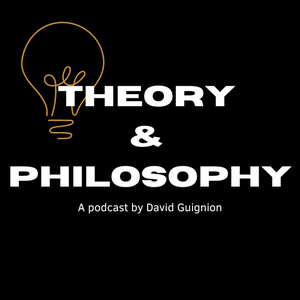
New Books in French Studies
Interviews with Scholars of France about their New Books
- 58 minutes 41 secondsElizabeth Campbell, "Museum Worthy: Nazi Art Plunder in Postwar Western Europe" (Oxford UP, 2024)
Art looting is commonly recognized as a central feature of Nazi expropriation, in both the Third Reich and occupied territories. After the war, the famed Monuments Men (and women) recovered several hundred thousand pieces from the Germans' makeshift repositories in churches, castles, and salt mines. Well publicized restitution cases, such as that of Gustav Klimt's luminous painting featured in the film Woman in Gold, illustrate the legacy of Nazi looting in the art world today. But what happened to looted art that was never returned to its rightful owners?
In France, Belgium, and the Netherlands, postwar governments appropriated the most coveted unclaimed works for display in museums, embassies, ministries, and other public buildings. Following cultural property norms of the time, the governments created custodianships over the unclaimed pieces, without using archives in their possession to carry out thorough provenance (ownership) research. This policy extended the dispossession of Jewish owners wrought by the Nazis and their collaborators well into the twenty-first century.
The custodianships included more than six hundred works in Belgium, five thousand works in the Netherlands, and some two thousand in France. They included paintings by traditional and modern masters, such as Rembrandt, Cranach, Rubens, Van der Weyden, Tiepolo, Picasso, and Matisse. This appropriation of plundered assets endured without controversy until the mid-1990s, when activists and journalists began challenging the governments' right to hold these items, ushering in a period of cultural property litigation that endures to this day. Including interviews that have never before been published, Museum Worthy: Nazi Art Plunder in Postwar Western Europe (Oxford University Press, 2024) by Dr. Elizabeth Campbell deftly examines the appropriation of Nazi art plunder by postwar governments and highlights the increasingly successful postwar art recovery and restitution process.
This interview was conducted by Dr. Miranda Melcher whose new book focuses on post-conflict military integration, understanding treaty negotiation and implementation in civil war contexts, with qualitative analysis of the Angolan and Mozambican civil wars.
Learn more about your ad choices. Visit megaphone.fm/adchoices
Support our show by becoming a premium member! https://newbooksnetwork.supportingcast.fm/french-studies
29 January 2025, 9:00 am - 1 hour 12 minutesUdo Hock, "The Mysterious Messages of the Other: On the Work of Jean Laplanches" (Psychosozial-Verlag, 2024)
Udo Hock's Die rätselhaften Botschaften des Anderen. Zum Werk Jean Laplanches (The enigmatic messages of the other. On the work of Jean Laplanche), came out in 2024 with Psychosozial-Verlag, and collectes nine essays that Hock published over the past twenty years. Published in 2024 to celebrate Laplanche's centennial, these papers are a crucial contribution to Laplanche studies from one of its key actors. Hock is not only a reader and commentator of Laplanche, but also an editor and translator of many of Laplanche's German-language translations. Hock has a real eye for the complexities of Laplanche's work, and he thinks Laplanche together with other thinkers such as Žižek or figures of French Theory. Hock is steeped in French Theory and its milieu, of which he himself has been a member for the past forty years. He proposes to psychoanalysis a shift away from its monothematic anglophilia toward an appreciation of the French schools.
I recommend reading closely these essays to anyone capable of reading German. They open up another Laplanche, the Laplanche of linguistic sublety and conceptual ingenuity. All the while Hock offers critical re-examinations of central psychoanalytic notions through his engagment with Laplanchian concepts such as seduction, mytho-symbolism or the message.
The interview itself has a wonderfully explorative and open-ended quality. Hock really embarked on a journey of thinking, when he spoke of Laplanche, Lacan, Klein, and other other ideas central Laplanche's work. i greatly enjoyed this interview for its meditative quality, for the fact that Hock dwelled on topics, excavating what lies beneath the surface.
Interview conducted by Myriam Sauer (in person, so at times the voices may become a bit silent)
Learn more about your ad choices. Visit megaphone.fm/adchoices
Support our show by becoming a premium member! https://newbooksnetwork.supportingcast.fm/french-studies
26 January 2025, 9:00 am - 1 hour 27 minutesHélène Tessier, "Laplanche's Vocabulary" (PUF, 2024)
In Vocabulaire de Laplanche (PUF, 2024), edited by the renowned scholar and analyst, Hélène Tessier, several of the key readers of Jean Laplanche's work propose what is nothing short of a revelation for Laplanche studies. Theirs is a vocabulary that provides a concise and accessible dictionary of key Laplanchian terms, inviting readers of Laplanche's work to engage with the French psychoanalyst's work.
In a wide-ranging conversation, professor Tessier delves into Laplanche's work, highlighting the importance of linking/dellinking to his thinking, establishing connections with sublimation and questions of culture and the drives. Tessier embarks on a real tour de force, reconstructing Laplanche's work with the utmost of passion. It was a wonderful conversation that has me ever convinced in stating that this book is a must-have for any Francophone psychoanalyst or scholar of psychonalysis.
Interview conducted by Myriam Sauer.
Learn more about your ad choices. Visit megaphone.fm/adchoices
Support our show by becoming a premium member! https://newbooksnetwork.supportingcast.fm/french-studies
24 January 2025, 9:00 am - 1 hour 9 minutesThe First and Last King of Haiti: The Rise and Fall of Henry Christophe
Henry Christophe was born to an enslaved mother on the Caribbean island of Grenada, and fought to overthrow the British in North America before helping his fellow enslaved Africans in Saint-Domingue—as Haiti was then called—to end slavery. He rose to power and became their king. In his time, he was popular and famous the world over. So how did he become an enigma?
In The First and Last King of Haiti: The Rise and Fall of Henry Christophe, Dr. Marlene L. Daut reclaims the life story of this controversial revolutionary and only king of Haiti, drawing from a trove of previously overlooked sources to paint a captivating history of his life and the awe-inspiring kingdom he built. Peeling back the layers of myth and misconception reveals a man driven by both noble ideals and profound flaws, as unforgettable as he is enigmatic. More than just a biography, The First and Last King of Haiti is an exploration of power, ambition, and the human spirit. From his pivotal role in the Haitian Revolution to his coronation as king and eventual demise, this book is testament to the enduring allure of those who dare to defy the odds and shape the course of nations. The First and Last King of Haiti is a story of not only geopolitical clashes on a grand scale but also of friendship and loyalty, treachery and betrayal, heroism and strife in an era of revolutionary upheaval. Slave, revolutionary, traitor, king, and suicide, Henry Christophe was, in his time, popular and famous the world over. Born in 1767 to an enslaved mother on the Caribbean island of Grenada, Christophe first fought to overthrow the British in North America, before helping his fellow enslaved Africans in Saint-Domingue, as Haiti was then called, to gain their freedom from France. Yet in an incredible twist of fate, Christophe ended up fighting with Napoleon’s forces against the very enslaved men and women he had once fought alongside. Later, euniteng with those he had betrayed, he offered to lead them and made himself their king. But it all came to a sudden and tragic end when Christophe—after nine years of his rule as King Henry I—shot himself in the heart, some say with a silver bullet.
Why did Christophe turn his back on Toussaint Louverture and the very revolution with which his name is so indelibly associated? How did it come to pass that Christophe found himself accused of participating in the plot to assassinate Haiti’s first ruler, Dessalines? What caused Haiti to eventually split into two countries, one ruled by Christophe in the north, who made himself king, the other led by President Pétion in the south?
The First and Last King of Haiti is a riveting story of not only geopolitical clashes on a grand scale but also of friendship and loyalty, treachery and betrayal, heroism and strife in an era of revolutionary upheaval.
Our guest is: Dr. Marlene Daut, who is Professor of French and African Diaspora Studies at Yale University. Her books include Baron de Vastey and the Origins of Black Atlantic Humanism; Tropics of Haiti: Race and the Literary History of the Haitian Revolution in the Atlantic World, 1789–1865; Awakening the Ashes: An Intellectual History of the Haitian Revolution; and The First and Last King of Haiti: The Rise and Fall of Henry Christophe. She is co-editor of the Haitian Revolutionary Fictions: An Anthology, and her articles have appeared in The New Yorker, The New York Times, The Nation, Essence Magazine, Harper’s Bazaar, The Conversation, New Literary History, Nineteenth-Century Literature, and Comparative Literature, among others. She is the co-creator and co-editor of H-Net Commons’ digital platform, H-Haiti.
Our host is: Dr. Christina Gessler, who is the creator and producer of the Academic Life podcast.
Listeners might also enjoy:
- We Refuse: A Forceful History of Black Resistance
- Never Caught, with Dr. Erica Armstrong Dunbar
- Selling Anti-Slavery
- Running From Bondage
- Leading from the Margins
- Shoutin in the Fire
Learn more about your ad choices. Visit megaphone.fm/adchoices
Support our show by becoming a premium member! https://newbooksnetwork.supportingcast.fm/french-studies
23 January 2025, 9:00 am - 50 minutes 40 secondsCatherine Tatiana Dunlop, "The Mistral: A Windswept History of Modern France" (U Chicago Press, 2024)
Every year, the chilly mistral wind blows through the Rhône valley of southern France, across the Camargue wetlands, and into the Mediterranean Sea. Most forceful when winter turns to spring, the wind knocks over trees, sweeps trains off their tracks, and destroys crops. Yet the mistral turns the sky clear and blue, as it often appears in depictions of Provence. The legendary wind is central to the area’s regional identity and has inspired artists and writers near and far for centuries.
This force of nature is the focus of Dr. Catherine Dunlop’s The Mistral: A Windswept History of Modern France (University of Chicago Press, 2024), a wonderfully written examination of the power of the mistral wind, and in particular, the ways it challenged central tenets of nineteenth-century European society: order, mastery, and predictability. As Dunlop shows, while the modernizing state sought liberation from environmental realities through scientific advances, land modification, and other technological solutions, the wind blew on, literally crushing attempts at control, and becoming increasingly integral to regional feelings of place and community.
This interview was conducted by Dr. Miranda Melcher whose new book focuses on post-conflict military integration, understanding treaty negotiation and implementation in civil war contexts, with qualitative analysis of the Angolan and Mozambican civil wars.
Learn more about your ad choices. Visit megaphone.fm/adchoices
Support our show by becoming a premium member! https://newbooksnetwork.supportingcast.fm/french-studies
17 January 2025, 9:00 am - 1 hour 8 minutesEmily Marker, "Black France, White Europe: Youth, Race, and Belonging in the Postwar Era" (Cornell UP, 2022)
Thinking together the histories of European integration and African decolonization, Emily Marker's Black France, White Europe: Youth, Race, and Belonging in the Postwar Era (Cornell University Press, 2022) is a pathbreaking study of how the two continents continued to make one another's histories in the years after the Second World War. Tracking the ways that young people and education figured in plans for the future of both the French empire and of an integrated Europe, the book pursues archival traces and arguments that illuminate continuing debates about race, religion, inclusion, national, and transnational identities.
Pursuing policies and programs aimed at French imperial reform and renewal alongside attempts to inculcate a sense of Europeanness in a new generation of transnational citizens, Marker's chapters examine the contours of a postwar vision of a united Europe understood as at once "colorblind" and white, secular and Christian. When African students made claims for greater equality, they faced a "postwar racial common sense" that pointed up the limits of French and African solidarity in an era of decolonization.
Drawing on an impressive body of research, Black France, White Europe will be of tremendous interest to scholars of France, Africa, and Europe. The book is a compelling history of the present that connects contemporary debates about race, religion, and belonging to a longer durée of national, transnational, imperial, and postcolonial worldmaking. I hope listeners will enjoy our conversation as much as I did!
Learn more about your ad choices. Visit megaphone.fm/adchoices
Support our show by becoming a premium member! https://newbooksnetwork.supportingcast.fm/french-studies
5 January 2025, 9:00 am - 53 minutes 59 secondsStuart Elden, "The Early Foucault" (Polity Press, 2021)
What were the key ideas and influences on Michel Foucault’s early career? In The Early Foucault (Polity Press, 2021), Stuart Elden, Professor of Political Theory and Geography at the University of Warwick and author of the Progressive Geographies blog, charts Foucault’s formative intellectual years leading up to the publication of the ground-breaking The History of Madness. The book uses a range of new archival material, much of which has been only recently accessible, to show the influence of teachers, mentors, and colleagues, as well as Foucault’s practice as an academic and writer during the 1950s and early 1960s. Telling the story of the possible intellectual trajectories, in psychology and philosophy, Foucault might have followed, along with a clear examination of the roots of his later work, the book is essential reading across the humanities and social sciences.
Dave O'Brien is Chancellor's Fellow, Cultural and Creative Industries, at the University of Edinburgh's College of Art.
Learn more about your ad choices. Visit megaphone.fm/adchoices
Support our show by becoming a premium member! https://newbooksnetwork.supportingcast.fm/french-studies
3 January 2025, 9:00 am - 1 hour 4 minutesCamille Robcis, "Disalienation: Politics, Philosophy, and Radical Psychiatry in Postwar France" (U Chicago Press, 2021)
On this episode, J.J. Mull interviews scholar and historian Camille Robcis. In her most recent book, Disalienation: Politics, Philosophy, and Radical Psychiatry in Postwar France (University of Chicago Press, 2021), Robcis grapples with the historical, intellectual, psychiatric and psychoanalytic meaning of institutional psychotherapy as articulated at Saint-Alban Hospital in France by exploring the movement’s key thinkers, including François Tosquelles, Frantz Fanon, Félix Guattari, and Michel Foucault. Anchored in the history of one hospital, Robcis's study draws on a wide geographic context—revolutionary Spain, occupied France, colonial Algeria, and beyond—and charts the movement's place within a broad political-economic landscape, from fascism to Stalinism to postwar capitalism.
J.J. Mull is a poet, training clinician, and graduate student at Smith College School for Social Work currently living in Northampton, MA. He can be reached at [email protected].
Learn more about your ad choices. Visit megaphone.fm/adchoices
Support our show by becoming a premium member! https://newbooksnetwork.supportingcast.fm/french-studies
2 January 2025, 9:00 am - 1 hour 24 minutesJessica Namakkal, "Unsettling Utopia: The Making and Unmaking of French India" (Columbia UP, 2021)
After India achieved independence from the British in 1947, there remained five scattered territories governed by the French imperial state. It was not until 1962 that France fully relinquished control. Once decolonization took hold across the subcontinent, Western-led ashrams and utopian communities remained in and around the former French territory of Pondicherry—most notably the Sri Aurobindo Ashram and the Auroville experimental township, which continue to thrive and draw tourists today.
Unsettling Utopia: The Making and Unmaking of French India (Columbia UP, 2021) presents a new account of the history of twentieth-century French India to show how colonial projects persisted beyond formal decolonization. Through the experience of the French territories, Jessica Namakkal recasts the relationships among colonization, settlement, postcolonial sovereignty, utopianism, and liberation, considering questions of borders, exile, violence, and citizenship from the margins. She demonstrates how state-sponsored decolonization—the bureaucratic process of transferring governance from an imperial state to a postcolonial state—rarely aligned with local desires. Namakkal examines the colonial histories of the Aurobindo Ashram and Auroville, arguing that their continued success shows how decolonization paradoxically opened new spaces of settlement, perpetuating imperial power. Challenging conventional markers of the boundaries of the colonial era as well as nationalist narratives, Unsettling Utopia sheds new light on the legacies of colonialism and offers bold thinking on what decolonization might yet mean.
Jessica Namakkal is assistant professor of the practice in international comparative studies at Duke University.
Samee Siddiqui is a PhD Candidate at the Department of History, University of North Carolina at Chapel Hill. His dissertation explores discussions relating to religion, race, and empire between South Asian and Japanese figures in Tokyo from 1905 until 1945.
Learn more about your ad choices. Visit megaphone.fm/adchoices
Support our show by becoming a premium member! https://newbooksnetwork.supportingcast.fm/french-studies
1 January 2025, 9:00 am - 54 minutes 27 secondsRobert Darnton, "Pirating and Publishing: The Book Trade in the Age of Enlightenment" (Oxford UP, 2021)
In the late-18th century, a group of publishers in what historian Robert Darnton calls the "Fertile Crescent" — countries located along the French border, stretching from Holland to Switzerland — pirated the works of prominent (and often banned) French writers and distributed them in France, where laws governing piracy were in flux and any notion of "copyright" very much in its infancy. Piracy was entirely legal and everyone acknowledged — tacitly or openly — that these pirated editions of works by Rousseau, Voltaire, and Diderot, among other luminaries, supplied a growing readership within France, one whose needs could not be met by the monopolistic and tightly controlled Paris Guild.
Darnton's book Pirating and Publishing: The Book Trade in the Age of Enlightenment (Oxford UP, 2021) focuses principally on a publisher in Switzerland, one of the largest and whose archives are the most complete. Through the lens of this concern, he offers a sweeping view of the world of writing, publishing, and especially bookselling in pre-Revolutionary France--a vibrantly detailed inside look at a cut-throat industry that was struggling to keep up with the times and, if possible, make a profit off them. Featuring a fascinating cast of characters — lofty idealists and down-and-dirty opportunists — this new book expands upon on Darnton's celebrated work on book-publishing in France, most recently found in Literary Tour de France. Pirating and Publishing reveals how and why piracy brought the Enlightenment to every corner of France, feeding the ideas that would explode into revolution.
Zach McCulley (@zamccull) is a historian of religion and literary cultures in early modern England and PhD candidate in History at Queen's University Belfast.
Learn more about your ad choices. Visit megaphone.fm/adchoices
Support our show by becoming a premium member! https://newbooksnetwork.supportingcast.fm/french-studies
29 December 2024, 9:00 am - 1 hour 6 minutesEmily Herring, "Herald of a Restless World: How Henri Bergson Brought Philosophy to the People" (Basic Books, 2024)
Herald of a Restless World: How Henri Bergson Brought Philosophy to the People (Basic Books, 2024) is the first English-language biography of Henri Bergson, the philosopher who defined individual creativity and transformed twentieth century thought.
At the dawn of the twentieth century, Henri Bergson became the most famous philosopher on earth. Where prior thinkers sketched out a predictable universe, he asserted the transformative power of consciousness and creativity. An international celebrity, he made headlines around the world debating luminaries like Bertrand Russell and Albert Einstein about free will and time. The vision of creative evolution and freedom he presented was so disruptive that the New York Times branded him "the most dangerous man in the world."
In the first English-language biography of Bergson, Emily Herring traces how his celebration of the time-bending uniqueness of individual experience struck a chord with those shaken by modern technological and social change. Bergson captivated a society in flux like no other. Long after he faded from public view, his insights into memory, time, joy and creativity continue to shape our perceptions to this day. Herald of a Restless World is an electrifying portrait of a singular intellect.
Emily Herring is a writer based in Paris. She studied philosophy at the Sorbonne and received her PhD in the history and philosophy of science from the University of Leeds. Her work has appeared in the TLS and Aeon.
Morteza Hajizadeh is a Ph.D. graduate in English from the University of Auckland in New Zealand. His research interests are Cultural Studies; Critical Theory; Environmental History; Medieval (Intellectual) History; Gothic Studies; 18th and 19th Century British Literature. YouTube channel. Twitter.
Learn more about your ad choices. Visit megaphone.fm/adchoices
Support our show by becoming a premium member! https://newbooksnetwork.supportingcast.fm/french-studies
29 December 2024, 9:00 am - More Episodes? Get the App
Your feedback is valuable to us. Should you encounter any bugs, glitches, lack of functionality or other problems, please email us on [email protected] or join Moon.FM Telegram Group where you can talk directly to the dev team who are happy to answer any queries.
 The Book Review
The Book Review
 Why Theory
Why Theory
 Deconstructed
Deconstructed
 Theory & Philosophy
Theory & Philosophy
 The Ezra Klein Show
The Ezra Klein Show
 On the Media
On the Media